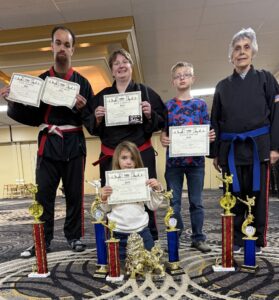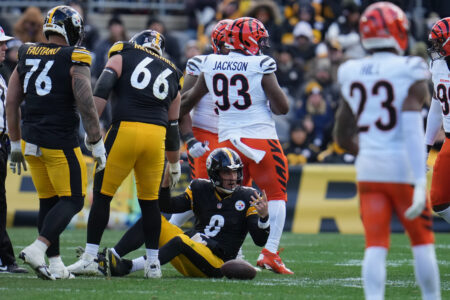What makes a dad great?

Photo courtesy of Steve Sorensen While Dad was hunting, he was equal parts hunter and thinker.
My father wasn’t noticed by anyone outside his family and his hometown. He did not have wealth or education. He was a humble, hard-working husband and father who raised five kids. His work as a fireman, a policeman, and a public works supervisor–and many odd jobs after regular work hours–kept him in the eyes of the public in Warren, Pennsylvania. He did worthy work, and he did it well.
When I lived in Boston, Kansas City, North Carolina, and Washington, DC, no one knew my father. But when I moved back to the Warren area in 1981, it seemed as though nearly everyone I met knew him. Many spoke of him as a great man. Why?
Dad wasn’t a star athlete. He didn’t rise in political leadership. He had no title in front of his name, or letters after his name. His greatness didn’t come from wealth or position. Nor did it come through some heroic act noticed by everyone.
You can be famous for those things, and for many more things. Even for being an “American Idol,” greatness doesn’t come from becoming anyone’s object of worship, or from seeking fame as many people do today. Fame isn’t greatness. Fame isn’t even a path to greatness. The truth is that greatness comes easier than fame, and greatness is preferred over fame.
Greatness seldom comes suddenly. It doesn’t come from waiting for the right opportunity. It comes the same way for everyone. It comes through long, faithful service. It comes through years of character, consistency, and trustworthiness.
While I had the benefit of more education than my father had, education wasn’t a greater benefit than having my dad as my father. Education isn’t what made me into a writer. In a real sense, I owe more to my father than to my education. Without Dad, the words I write could not have been written because he taught me something I love. He taught me to hunt.
Dad’s knowledge of hunting was limited. For him, it started out as a means of getting meat. He grew up in a poor family where deer were an important source of meat for his mom, his dad, and their eight kids. Things didn’t change much when he had his own family–venison was still a staple on the family table.
Dad and I never talked about subsistence hunting, or market hunting, or what changed to make hunting the key to wildlife conservation in today’s America. Dad may not have known much about the history of hunting, and that Theodore Roosevelt enlisted the nation’s hunters to save wildlife from ruin. Dad did know that deer were scarce at the beginning of the twentieth century, and that by the time he began hunting in the early 1940s they had become abundant. He might not have known conservation hunting was the reason for that.
Dad simply taught me to do something I enjoy and something I appreciate. Most important, it was something I could do with him. It happened to be hunting, and it offered a foundation we could both build on.
We need more people like Roger Sorensen. He was a good storyteller, and his stories about hunting put me in a place where I began to learn what hunting really is. They made what I write Dad’s legacy as much as it is mine. I salute Dad–a simple, ethical hunter who taught me to be a simple, ethical hunter, and as he matured, to think in a deeper way about hunting and what it means. That’s why my writing about hunting isn’t always only about hunting.
My gratitude to Dad and for Dad falls far short of what I truly owe him. And I suspect many of my readers will feel the same about their dads.
***
When “The Everyday Hunter” isn’t hunting, he’s thinking about hunting, talking about hunting, dreaming about hunting, writing about hunting, or wishing he were hunting. If you want to tell Steve exactly where your favorite hunting spot is, contact him through his website, www.EverydayHunter.com. He writes for top outdoor magazines, and won the 2015, 2018, and 2023 national “Pinnacle Award” for outdoor writing.


